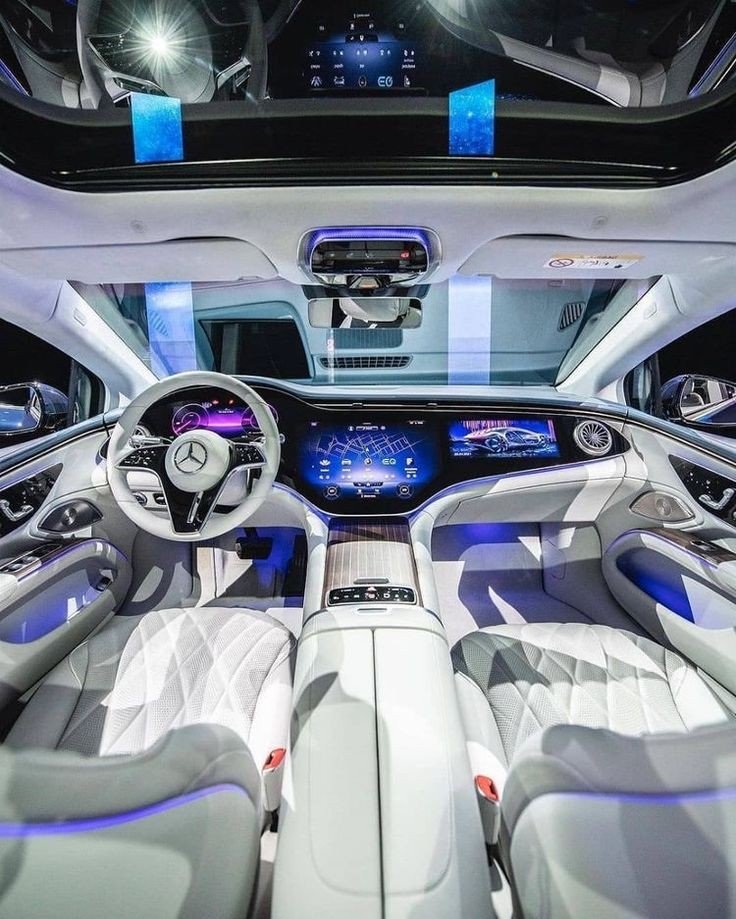
A Hydrogen Fuel Cell Vehicle (FCV) is a type of automobile that uses hydrogen fuel cells to generate electricity, which powers an electric motor. Unlike conventional internal combustion engine vehicles that rely on gasoline or diesel, or battery-electric vehicles that use electricity stored in batteries, hydrogen fuel cell vehicles combine hydrogen with oxygen to produce electricity on board. This process emits only water vapor and heat as byproducts, making FCVs a clean and efficient alternative to fossil fuel-powered vehicles. This article explores the concept of hydrogen fuel cell vehicles, how they work, their advantages and challenges, and their role in the future of transportation.
How Hydrogen Fuel Cell Vehicles Work
- Hydrogen Fuel Cell Technology
At the heart of an FCV is the hydrogen fuel cell, a device that converts chemical energy into electrical energy through an electrochemical reaction. The fuel cell consists of two electrodes—an anode and a cathode—separated by an electrolyte membrane.
- Hydrogen Input: Hydrogen gas is supplied to the anode side of the fuel cell. Here, hydrogen molecules are split into protons and electrons.
- Electrochemical Reaction: The protons pass through the electrolyte membrane to the cathode side, while the electrons travel through an external circuit, creating an electric current.
- Oxygen Input: Oxygen from the air is supplied to the cathode side of the fuel cell. At the cathode, oxygen molecules combine with the protons and electrons to form water (H₂O).
- Byproducts: The only byproducts of this reaction are water vapor and heat, making the process environmentally friendly.
- Electric Motor and Battery
The electricity generated by the fuel cell is used to power an electric motor, which drives the vehicle’s wheels. Hydrogen fuel cell vehicles typically include a small battery or supercapacitor to store excess energy generated during braking (regenerative braking) or to provide additional power during acceleration.
- Hydrogen Storage
Hydrogen gas is stored in high-pressure tanks within the vehicle. These tanks are designed to safely contain hydrogen at pressures up to 700 bar (10,000 psi). The stored hydrogen is then fed into the fuel cell as needed.
- Power Management System
A power management system controls the flow of electricity between the fuel cell, battery, and electric motor. It ensures that the vehicle operates efficiently, optimizing performance and energy use based on driving conditions.
Advantages of Hydrogen Fuel Cell Vehicles
- Environmental Benefits
- Zero Emissions: Hydrogen fuel cell vehicles produce only water vapor and heat as emissions, significantly reducing air pollutants and greenhouse gases compared to internal combustion engine vehicles.
- Reduced Carbon Footprint: When hydrogen is produced using renewable energy sources (e.g., wind, solar), the overall carbon footprint of hydrogen fuel cell vehicles can be very low.
- Refueling Time
- Fast Refueling: Hydrogen fuel cell vehicles can be refueled in a matter of minutes, similar to conventional gasoline vehicles. This is much faster than charging a battery-electric vehicle, which can take hours.
- Extended Range
- Long Driving Range: FCVs generally offer a driving range comparable to or exceeding that of gasoline vehicles. This is due to the high energy density of hydrogen compared to batteries.
- Performance
- Smooth and Quiet Operation: Hydrogen fuel cell vehicles provide smooth and quiet operation, as they use electric motors that generate less noise and vibration than internal combustion engines.
Challenges of Hydrogen Fuel Cell Vehicles
- Infrastructure Development
- Limited Refueling Stations: The network of hydrogen refueling stations is still limited compared to gasoline stations and electric vehicle charging points. Expanding this infrastructure is crucial for the widespread adoption of FCVs.
- Hydrogen Production and Distribution
- Energy-Intensive Production: Currently, most hydrogen is produced using natural gas through a process called steam methane reforming, which is energy-intensive and produces carbon dioxide. Green hydrogen, produced using renewable energy through electrolysis, is more sustainable but less common.
- High Costs
- Vehicle and Fuel Costs: Hydrogen fuel cell vehicles and hydrogen fuel itself are relatively expensive due to the cost of technology and infrastructure. While costs are expected to decrease with advancements and economies of scale, they remain a barrier to widespread adoption.
- Storage and Safety
- Hydrogen Storage: Storing hydrogen safely at high pressures requires specialized tanks and infrastructure. Although hydrogen is a flammable gas, rigorous safety standards and technologies are in place to manage risks.
- Energy Efficiency
- Overall Efficiency: The process of producing, transporting, and storing hydrogen, followed by its conversion into electricity in fuel cells, can be less energy-efficient compared to direct use of electricity in battery-electric vehicles.
Role in the Future of Transportation
- Complementary to Battery-Electric Vehicles
Hydrogen fuel cell vehicles are expected to complement battery-electric vehicles rather than replace them. While battery-electric vehicles are well-suited for short-range, urban driving, hydrogen FCVs can offer advantages for longer distances and heavier applications, such as trucks and buses.
- Heavy-Duty and Commercial Applications
FCVs are particularly promising for heavy-duty and commercial applications, including long-haul trucks, buses, and delivery vehicles. Their quick refueling time and long driving range make them suitable for fleet operations and public transportation.
- Integration with Renewable Energy
Hydrogen production using renewable energy sources can help balance the grid and store excess energy from intermittent sources like wind and solar. This integration supports a transition to a more sustainable energy system.
- Global Adoption
Countries with strong policies and investments in hydrogen infrastructure, such as Japan, South Korea, and Germany, are leading the way in FCV adoption. As technology advances and costs decrease, hydrogen fuel cell vehicles are expected to become more widespread globally.
Conclusion
Hydrogen fuel cell vehicles represent a promising and environmentally friendly alternative to traditional internal combustion engine vehicles. By harnessing the power of hydrogen to generate electricity, FCVs offer the benefits of zero emissions, fast refueling, and extended driving range. Despite challenges related to infrastructure, production, and cost, ongoing advancements in technology and increased investment in hydrogen infrastructure are paving the way for greater adoption of FCVs. As part of a diversified approach to sustainable transportation, hydrogen fuel cell vehicles have the potential to play a significant role in the future of mobility.







